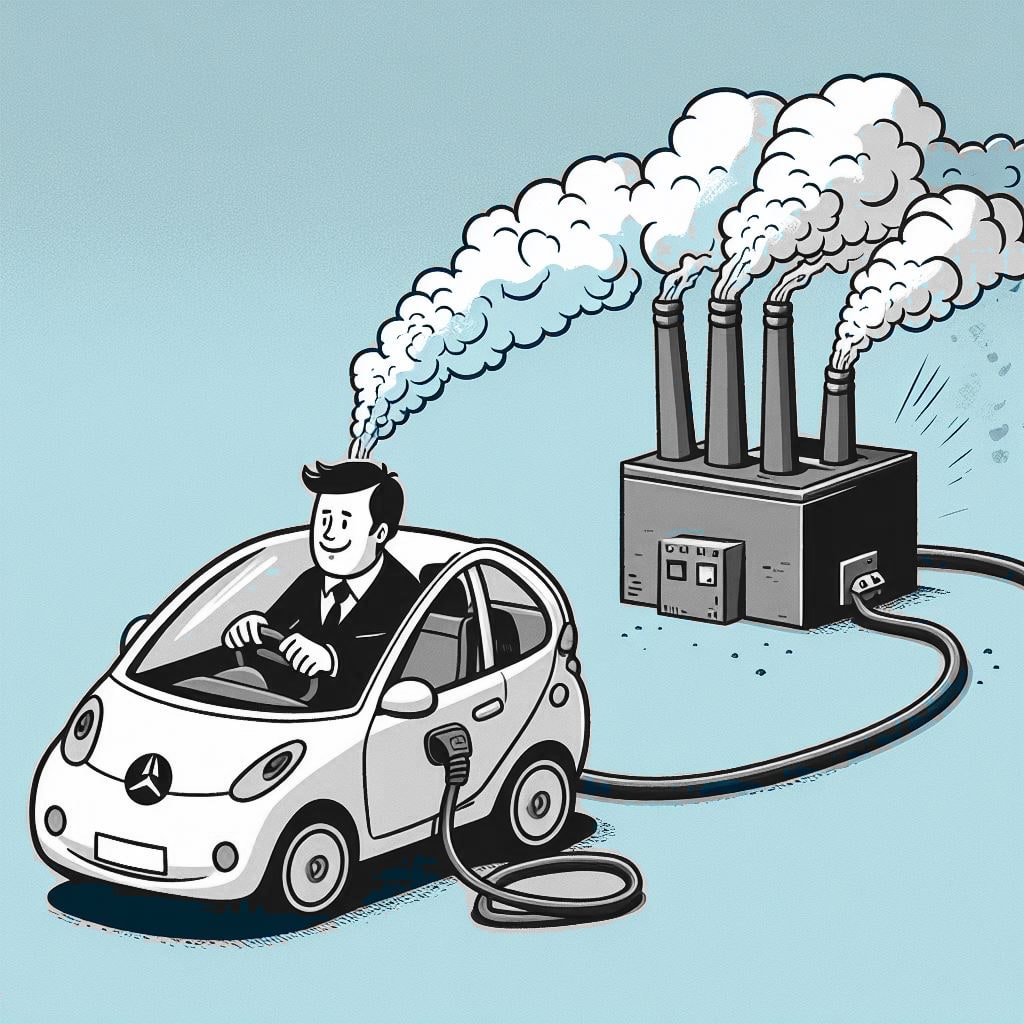Electrical Cars
Environmental-friendly?

Electric vehicles (EVs) have emerged as a promising solution in the global effort to combat climate change, offering the tantalizing prospect of a future free from the carbon emissions associated with traditional gasoline-powered vehicles. However, recent studies have shed light on the intricate web of environmental complexities that lie beneath the surface of zero-emission driving.
At the heart of the matter lies the production of batteries, often regarded as the Achilles' heel of EVs. The energy-intensive processes involved in manufacturing batteries, which include the extraction and refinement of critical minerals like lithium, cobalt, and nickel, exact a toll on the environment. These processes not only generate significant carbon emissions but also contribute to environmental degradation, raising concerns about the true sustainability of electric vehicles.
A study published in the prestigious Nature Journal underscores the magnitude of the issue, revealing that the embodied emissions of lithium-ion batteries can be substantial, ranging from 61 to 101 kg CO2 eq/kWh, depending on factors such as battery chemistry and production location. This highlights the considerable environmental burden associated with the very components that power the green revolution on our roads.
While EVs themselves produce zero tailpipe emissions, the carbon footprint linked to the generation of electricity for charging cannot be overlooked. The environmental impact varies widely depending on the energy mix of the grid, with fossil fuel-based sources emitting far more carbon than renewable alternatives such as solar and wind. The International Council on Clean Transportation (ICCT) emphasizes the pivotal role played by the cleanliness of the electricity grid in determining the overall greenhouse gas (GHG) emissions of electric vehicles, noting that while EVs can offer substantial lifecycle GHG reductions in regions with clean grids, the benefits are diminished in areas reliant on dirty energy sources.
According to data from the U.S. Department of Energy, the average EV produces significantly fewer emissions than its gasoline-powered counterparts on an annual basis. However, it's crucial to recognize the substantial upfront environmental burden associated with battery production. For instance, the production of an 80-kWh battery in a Tesla Model 3 can result in emissions ranging from 2.5 to 17.5 tons of CO2 equivalent, underscoring the importance of considering the entire lifecycle of electric vehicles.
Addressing these environmental challenges requires a multifaceted approach that extends beyond technological innovation alone. Ethical sourcing practices, responsible recycling initiatives, and research into alternative battery chemistries are all essential components of a sustainable solution. By tackling environmental and social injustices associated with mining and manufacturing processes, we can mitigate the negative impacts of electric vehicle production and move towards a more equitable future.
As Amory Lovins, co-founder of the Rocky Mountain Institute, aptly observes, the transition to electric vehicles must be accompanied by broader shifts in societal behavior and urban planning. A holistic approach that encompasses not only the adoption of electric vehicles but also reductions in driving demand and smarter urban design is crucial for achieving meaningful progress toward sustainability.
To sum up, while electric vehicles represent a significant step towards reducing greenhouse gas emissions and transitioning to a cleaner transportation system, addressing the environmental challenges inherent in their production and operation requires a concerted effort. By adopting a comprehensive approach that addresses the entire lifecycle of electric vehicles, we can pave the way for a truly sustainable and equitable future.
About the Creator
Dr. Sulaiman Algharbi
Retired after more than 28 years of experience with the Saudi Aramco Company. Has a Ph.D. degree in business administration. Book author. Articles writer. Owner of ten patents.
Instagram: https://www.instagram.com/sulaiman.algharbi/






Comments
There are no comments for this story
Be the first to respond and start the conversation.